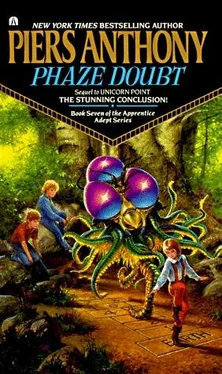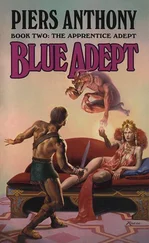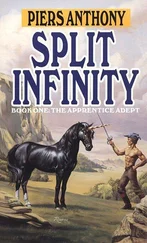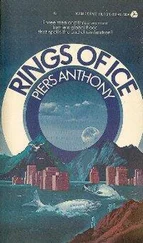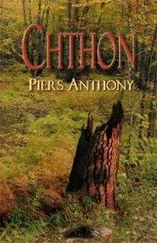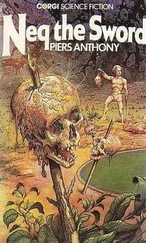Piers Anthony - Phaze Doubt
Здесь есть возможность читать онлайн «Piers Anthony - Phaze Doubt» весь текст электронной книги совершенно бесплатно (целиком полную версию без сокращений). В некоторых случаях можно слушать аудио, скачать через торрент в формате fb2 и присутствует краткое содержание. Год выпуска: 1990, ISBN: 1990, Издательство: Putnam's, Жанр: Старинная литература, на английском языке. Описание произведения, (предисловие) а так же отзывы посетителей доступны на портале библиотеки ЛибКат.
- Название:Phaze Doubt
- Автор:
- Издательство:Putnam's
- Жанр:
- Год:1990
- ISBN:9780399135293
- Рейтинг книги:3 / 5. Голосов: 1
-
Избранное:Добавить в избранное
- Отзывы:
-
Ваша оценка:
- 60
- 1
- 2
- 3
- 4
- 5
Phaze Doubt: краткое содержание, описание и аннотация
Предлагаем к чтению аннотацию, описание, краткое содержание или предисловие (зависит от того, что написал сам автор книги «Phaze Doubt»). Если вы не нашли необходимую информацию о книге — напишите в комментариях, мы постараемся отыскать её.
Phaze Doubt — читать онлайн бесплатно полную книгу (весь текст) целиком
Ниже представлен текст книги, разбитый по страницам. Система сохранения места последней прочитанной страницы, позволяет с удобством читать онлайн бесплатно книгу «Phaze Doubt», без необходимости каждый раз заново искать на чём Вы остановились. Поставьте закладку, и сможете в любой момент перейти на страницу, на которой закончили чтение.
Интервал:
Закладка:
He did. The donkey became a tiger, whose paws skidded as it turned to face the unicorn.
Lysander veered aside. The tiger was trouble. True, the unicorn could spear the feline with the horn—but the tiger knew how to avoid horns, and if the first thrust didn’t score, the tiger would pounce and bite. The prey had become the predator.
Now the tiger had one minute to bring down the unicorn, or forfeit. The onus had shifted.
Lysander elected to remain with the unicorn, because there was an advantage in avoiding change. An animal could be used only once; then its sign was taken down, and it was retired. If one side used up all its animals, and the other saved a number, that other side would have a significant advantage in the end game. That player would be able to use a fleet animal to catch the other, then shift to a killer animal for the finale.
The unicorn took off. The tiger leaped after, but already the unicorn was at speed. The tiger put forth its best effort, and gained, but it was evident that it would be unable to close the gap within a minute, if at all. Tigers were good for the short run, but not for the long, while unicorns could run all day if they had to. The Chief had to change forms again, or lose by default. That onus was a deadly thing!
The tiger became a flying dragon. The onus was still on the Chief, because it belonged to the last form change, but the minute started fresh from the moment of that change. Lysander had gained a long-range advantage, because he was on his first animal while the Chief was on his third, but that dragon could finish the game in the short range.
Indeed, in a moment the dragon was looming overhead and orienting its snoot for a fiery blast. He had to change!
He changed to a salamander, and stared up at the dragon. The dragon did a doubletake and popped into a blind eel. The eel fell to the ground and wriggled desperately away. The Chief had been caught by surprise and made an error; he should have continued his attack, because though a magic salamander was immune to fire, it wasn’t immune to teeth. The Chief had confused it with a basilisk, whose stare could kill; the Chief had taken the handiest way to stop the meeting of the eyes by adopting an eyeless form.
Lysander scrambled after the eel, who wasn’t well suited to motion on land. The eel heard the noise and hastily became a hawk, who flew away without looking back.
Lysander had definitely come out ahead in this encounter. The Chief had used two more forms to his one, and still had the onus. And—Lysander had done it on a bluff, for this was neither basilisk nor magic salamander, but an ordinary one, harmless to anything larger than a fly.
As the Chief was about to realize. The hawk was coming back, and it would make short work of the salamander. One snap of its beak—
Lysander burrowed down into the grass, trying to hide. If he could remain clear for another thirty seconds—
The hawk came to the ground, and changed. Lysander couldn’t see the change, but he knew it had occurred, because a bird on land did not make that slithering sound. That was either a lizard, or—
The head of a snake loomed over him. It struck down—as Lysander became a mongoose.
He spun about to face the snake. It was a simple black racer, not venomous to man but deadly enough to a salamander. But the mongoose was able to kill even the most deadly snakes. Lysander had the onus now. He dived in—
The snake became a wolf. The wolf’s jaws snapped at the mongoose—
Lysander became a giant serpent. The serpent’s jaws opened to take in the wolf.
The wolf became a bear. A bear was a lot tougher animal than many supposed; it could handle just about any other animal its size, and anything smaller. It swiped at the serpent’s head.
Lysander became a rhinoceros. He swung his nose-horn viciously at the bear—who became a monstrous roc, a bird capable of catching up a rhino in its talons and carrying it away. Indeed, those talons closed on the rhino’s body, and the great wings spread. In a moment he would be lifted up. He could be carried high and dropped; any fall over five or six feet might kill him.
But he didn’t change. He let the bird haul him into the air. The roc carried him over a nearby rocky region, and let him go.
But as he fell, he became a sparrow. Of course he had nothing to fear from being dropped! Not as long as he could change to another flying form. Now the Chief had used up his largest and second largest flying forms—the roc and the dragon—and would not be able to use them again. Lysander had both those forms in reserve. He was still gaining.
But it would be foolish to let any opportunity pass. He needed to try for the quick victory, lest the Chief catch him first. He remembered seeing chess games where one player had pieces all over the board, but the other had the victory because of the position. Pieces were only part of it.
The sparrow looped and flew in at the roc. The roc’s beak snapped down, but the sparrow was swifter at close quarters, and got by. It came up against the roc’s fur-feathered leg—and became a cobra. By the definition of the game, a poisonous bite affected any other creature, even another of its kind, if it scored well. Lysander opened his mouth and struck at the flesh of the leg.
The roc became a gnat and zipped away; the cobra’s jaws snapped on nothing. And now he was in trouble, for he was in the air and falling.
He became a hawk. The Chief’s hawk had been used before, and it could not return, and there were few other birds that could catch a hawk. But the onus was on Lysander; he had to do the catching, and this was no form for gnat-hunting!
He pondered. The Chief would surely outwait him if he didn’t find a quick way to catch that gnat. A toad could do it—but the gnat would be flying high up, out of reach of a landbound creature. This was a problem!
Then he had it. He became not a dragon, but a dragonfly. Dragonflies hunted smaller insects on the wing, and were strong flyers and efficient predators. He looped around and spied the gnat, who hadn’t gone far. Indeed, a gnat couldn’t get far in a few seconds, compared to a dragonfly.
He revved up his four wings and zoomed in for the kill. But the gnat became a toad in midair, its mouth opening. Lysander realized that though the toad would fall to the ground, it would get the dragonfly first, and win; the fall didn’t matter.
Caught by surprise, he found his mind blank. The toad’s sticky tongue came out, rooted at the front, catapulting toward him. He would be caught before he—
In desperation he became another toad; he couldn’t think of anything else.
The two loads collided in the air, and fell together.
Lysander still had the onus. He had only seconds: should he assume a form to crunch the other toad, or wait for the Chief to change, so the Chief would be committed, and Lysander could immediately counter the form? The latter seemed better.
But the Chief seemed to have the same idea. They continued to fall. What would happen if they both splatted into the ground? They were playing a game of chicken!
Probably if they both persisted, it would be declared a draw, and they would have to play another game. Lysander was ahead in this game; he didn’t want to start another.
That decided him. So what if he went splat immediately after; he should grasp the victory first.
He became a weasel, which was more than enough to dispose of even the illest-tasting toad. He twisted around in the air and snapped at—
The Chief became a hippopotamous—and he was just above the weasel! He would land and squash the weasel flat! He would die himself—but after the weasel. This was the strategy of suicide.
Lysander became a horsefly and zoomed away. Such a change would not have been safe while the toad remained, but no hippo could nab a fly in the air.
Читать дальшеИнтервал:
Закладка:
Похожие книги на «Phaze Doubt»
Представляем Вашему вниманию похожие книги на «Phaze Doubt» списком для выбора. Мы отобрали схожую по названию и смыслу литературу в надежде предоставить читателям больше вариантов отыскать новые, интересные, ещё непрочитанные произведения.
Обсуждение, отзывы о книге «Phaze Doubt» и просто собственные мнения читателей. Оставьте ваши комментарии, напишите, что Вы думаете о произведении, его смысле или главных героях. Укажите что конкретно понравилось, а что нет, и почему Вы так считаете.
